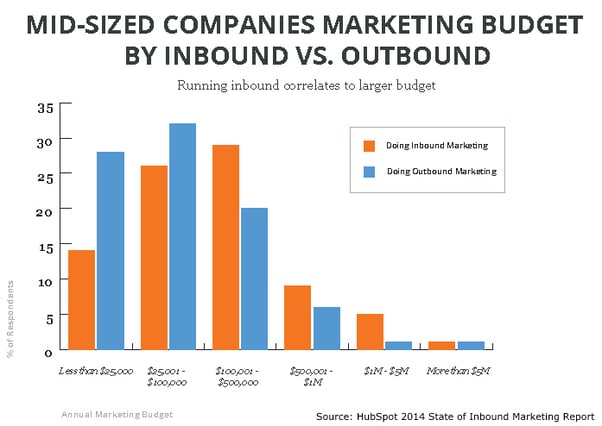Imagine the impact a well-planned law firm marketing budget could have on your law firm’s growth and success. As competition for clients becomes more intense, it’s crucial to allocate resources wisely and maximize the return on investment (ROI) for your marketing efforts.
But how do you create a marketing budget that aligns with your firm’s goals and also delivers increased number of new intake appointments?
This post guides you in planning your law firm's marketing budget, covering channels, digital strategies, performance monitoring, collaboration with legal firms, and avoiding mistakes.
In this comprehensive guide, you’ll learn about:
- Factors that influence law firm marketing budgets
- Recommended percentage of revenue for marketing
- Essential marketing channels for law firms
- Allocate your budget across channels
- Discover the importance of building an effective digital marketing strategy
- Tracking and measure marketing performance
- Partner with legal marketing agencies for better results.
- Avoid common marketing budget mistakes
Set your family law attorney or other law firm management consultants on the path to success.
Key Takeaways
-
Law firm marketing budgets should be tailored to the firm’s unique needs and goals, with recommended allocation of 10-12% of gross revenue.
-
Essential digital marketing channels such as website development, SEO, content marketing, social media & paid advertising are key for law firms to create a comprehensive strategy that drives growth.
-
To maximize ROI it is important to track performance metrics & adjust budget based on results. Partnering with a qualified legal agency can help achieve better results.
Understanding Law Firm Marketing Budgets

Law firm marketing budgets can vary greatly depending on factors such as firm size, location, and practice area. Research shows that only 46% of law firms, regardless of size, allocate money for marketing purposes. This demonstrates that the majority of law firms do not prioritize budgeting for a marketing budget. Producing meaningful outcomes necessitates the establishment of a well-planned budget.
Factors for large sized law firms such as size, service area, number of competitors, and search engine optimization are taken into consideration when allocating marketing budgets for most law firms. It is suggested to allocate 2-18% of gross revenue for marketing budgets. Law firms spend a significant portion of their resources on these marketing efforts.
To determine an appropriate budget for your own attorney marketing budget, it is advisable to research the amount that competitors’ spend. The S.M.A.R.T. (Specific, Measurable, Attainable, Relevant, and Time-based) framework can help legal firms determine their average law firm spend on marketing. Creating strategic marketing programs that delivers results and maximizes ROI involves setting clear goals and allocating your budget accordingly.
Factors Influencing Marketing Budgets
When determining your firm's marketing budget, several factors need to be considered. Target audience, competition, and business objectives all play a role in how much you should allocate for marketing efforts. The exact budget is contingent upon objectives and is a proportion of the projected gross revenue. Taking these factors into account allows for the creation of a marketing budget tailored to your firm’s unique needs and goals.
Content marketing is an essential aspect of your marketing budget. It refers to the production of:
-
blog posts
-
articles
-
long-form content
-
practice area pages
An appropriate budget for content marketing may range from 20-50% of the total annual marketing budget. Mid-size firms typically allocate a budget of $2,000 - $10,000 per month for content marketing. This amount is an average spend on marketing across all practice areas. Investing in content marketing effectively enhances your reach to potential customers in your target market and increases your online visibility.
Recommended Percentage of Revenue for Marketing
A healthy marketing budget for law firms is typically 4-8% of firm revenue. This percentage allows for sufficient investment in various marketing channels to attract new clients. However, for legal firms focused on growth, it’s recommended to allocate 10-12% of their revenue for their marketing initiatives.
Investing a higher percentage of your revenue in marketing assists in positioning your firm for accelerated growth and increased market share. It’s important to remember that the recommended percentage of revenue for marketing is a guideline, not a one-size-fits-all solution.
Your firm’s specific circumstances, such as practice area, competition, and target audience, should be taken into account when determining the appropriate marketing budget. Tailoring your budget to your firm’s needs aids in maximizing the effectiveness of your marketing efforts, achieving superior results.
Vital Marketing Channels for Law Firms

In today’s digital age, it’s crucial for law firms to invest in essential marketing channels to attract and convert leads. Some critical components of a successful marketing strategy for law firms include:
-
Website development
-
SEO
-
Content marketing
-
Social media
-
Paid advertising
Digital marketing offers a higher return on investment compared to traditional marketing methods, making it an attractive option for a law firm looking to maximize their marketing spend.
Each marketing channel serves a unique purpose in attracting potential clients and driving conversions. Website development and SEO ensure your firm’s online presence is optimized for both search engine visibility and user experience. Content marketing, social media, and paid advertising help to effectively reach your target audience and generate leads.
Investing in these essential marketing channels aids your law firm in creating a comprehensive and effective marketing blueprint that yields results and drives growth.
Allocating Budget Across Channels
For optimal results, it’s essential to allocate your marketing budget across channels according to your target audience, competition, and desired outcomes. This will allow your firm to create a balanced and effective strategic marketing approach that caters to the unique needs of your firm and its target market.
A recommended budget of $10,000 to $50,000 per month can be allocated for law firm advertising on various social media platforms. Social media marketing packages for a smaller law firm will typically range from $1,000-2,000 per month.
It’s important to monitor the performance of your marketing campaigns across different channels and adjust your budget allocation based on the results. Reallocating funds to high-performing channels and optimizing underperforming campaigns ensures effective utilization of your marketing budget and delivers the best possible ROI.
This data-driven approach to budget allocation will help your law firm make the most of its marketing channels and achieve success.
Building an Effective Digital Marketing Strategy

An effective digital marketing strategy for law firms includes:
-
Website design
-
SEO
-
Content marketing
-
Social media
-
Paid advertising
Investing in these key aspects of digital marketing enables your law firm to improve its online presence, reach a wider audience, and generate more leads.
In the following sections, we’ll look closely at the importance of website design and development, investing in SEO and content marketing, and utilizing social media and paid advertising. Implementing these strategies and allocating your online marketing budget accordingly empowers your law firm to build an effective digital marketing blueprint that delivers results and drives growth.
Importance of Website Design and Development
A professional and optimized website is crucial for any law firm looking to make a strong online impression and attract potential new clients. Your website serves as an online storefront, allowing visitors to gain insight into your law firm spend name, its various legal services here, and its team.
The recommended budget range for website design and development for small to mid-sized law firms is $5,000-25,000.
Investing in a well-designed website that is optimized to maximize revenue is essential for law firms as it assists in:
-
Converting potential clients
-
Minimizing lead leakage
-
Allocating a portion of your marketing budget to website design and development ensures a professional, user-friendly online presence for your firm
-
Optimizing for search engines, resulting in increased visibility and lead generation.
Investing in SEO and Content Marketing
SEO for law firms is critical for any sized law firm looking to rank higher in search engine results pages (SERPs) and attract potential clients who are searching for relevant keywords. By investing in SEO and content marketing, your firm can improve its online visibility and drive more organic traffic to its website.
It is recommended to allocate between $2,500 and $10,000 per month for SEO and content marketing for law firms.
To ensure your law firm’s SEO efforts are effective, it’s essential to work with a reliable agency or marketing specialist with a proven track record of success.
This can help your firm:
-
Rank higher in search engine results
-
Drive more qualified leads to your website
-
Allocate a portion of your marketing budget to SEO and content marketing
Positioning your online marketing firm for success in the competitive, online marketing marketplace.
Utilizing Social Media and Paid Advertising
Leveraging social media and paid advertising is essential for any law firm looking to extend their reach and generate leads. Some platforms that offer excellent opportunities for law firms to connect with potential and existing clients, and showcase their expertise include:
-
Facebook
-
Instagram
-
LinkedIn
-
YouTube
It is suggested that law firms allocate between $1,000-$2,000 per client acquisition month for social media marketing.
Paid advertising, on the other hand, allows law firms to target specific demographics and drive highly relevant traffic to their website. A recommended budget of $5,000 or more per month can be allocated for such paid, search engine optimization and advertising.
Investing in both social media marketing and paid advertising enables your law firm to:
Tracking and Measuring Marketing Performance

Tracking and measuring marketing performance is crucial for optimizing marketing spend and ensuring a positive ROI. Monitoring key metrics such as cost per lead, lead quantity and quality, and lead consistency allows for the evaluation of the effectiveness of your marketing initiatives and data-driven decisions for budget allocation.
This is essential for ensuring your marketing budget is utilized effectively and delivers the best possible ROI. In the following sections, we’ll explore the key metrics to monitor when tracking marketing performance and discuss how to adjust your budget of marketing based on the results.
By implementing these strategies, you can ensure your law firm is making the most of its marketing channels and achieving the desired results.
Key Metrics to Monitor
Monitoring key metrics is essential for evaluating the effectiveness of your law firm’s marketing oriented initiatives and making informed decisions about budget allocation. Some of the essential metrics to monitor include cost per lead, lead quantity and quality, and lead consistency.
Tracking these metrics provides valuable insights into the performance of your marketing campaigns and identifies areas for improvement.
Cost per lead measures the cost of obtaining a single lead, while lead quantity and quality evaluate the number and caliber of leads generated by a marketing campaign. Lead consistency, on the other hand, assesses the uniformity of leads generated over a period of time.
Monitoring these key metrics enables data-driven decisions about your marketing budget allocation, optimizing your marketing channels for maximum ROI.
Adjusting Marketing Budget Based on Performance
Adjusting your marketing budget based on performance is essential for optimizing your ad spend, and ensuring a positive ROI.
Here are some steps to follow:
-
Regularly monitor and analyze performance data of campaigns using analytics tools such as Google Analytics or other third-party tools.
-
Identify areas of underperformance and success.
-
Reallocate funds to high-performing channels.
-
Optimize underperforming campaigns. By following these steps, you can ensure that your marketing budget is utilized effectively.
To establish Key Performance Indicators (KPIs) for your law firm’s marketing campaigns, it’s important to determine objectives based on the desired outcomes of your marketing efforts. For instance, if the goal is to improve website traffic, then the KPI could be the volume of website visitors.
If the goal is to increase sales, then the KPI could be the number of sales. Setting clear KPIs and monitoring performance enables informed decisions about your marketing budget allocation, driving better results.
Working with Legal Marketing Agencies

Working with legal marketing companies and being a part of a legal marketing association can help your law firm achieve better results and a higher ROI on acquisition marketing alone. These professionals have the expertise and experience necessary to develop and execute successful marketing campaigns tailored to your personal injury law firm’s unique needs and goals.
However, it’s important to evaluate agency options and consider the budget implications before partnering with a marketing firm.
In the following sections, we’ll discuss the process of evaluating marketing agency options and the budget considerations to keep in mind when hiring an agency.
Working with a qualified legal marketing companies ensures that your law firm’s marketing oriented initiatives are optimized for success and deliver the best possible ROI.
Evaluating Marketing Agency Options
When evaluating legal marketing firms, it’s important to consider their expertise, track record, and alignment with your legal firm*’s goals and budget.
A qualified marketing company should have a proven history of success in the legal industry and be able to demonstrate their ability to achieve desired results for their clients.
Thoroughly researching potential agencies and requesting references ensures that you’re partnering with a marketing professional who understands your firm’s unique needs and goals.
In addition to expertise and track record, it’s important to ensure that the agency you choose can operate within your budget. Assess the cost of their services, the duration of the contract, and any additional fees or expenses before making a decision.
Carefully evaluating marketing firm options and considering budget implications ensures that your personal injury firms' partnership with a legal marketing agency delivers the best possible results for your personal injury firm itself.
Budget Considerations When Hiring an Agency
When engaging a marketing firm specializing in the legal field, it's crucial to evaluate both the initial cost and the potential return on investment. Collaborating with a well-matched legal marketing agency that provides a variety of services customized to your firm's requirements and financial constraints ensures the optimization of your marketing endeavors, leading to the highest possible return on investment.
- Small law firm should allocate 2-5% of their gross revenue towards marketing to invest in the necessary marketing activities to reach their desired goals.
- Larger criminal defense attorneys typically spend 5-10% of their gross revenue towards marketing, which includes TV ads.
In addition to the initial marketing investment, it’s important to consider the ongoing costs of working with a marketing agency. This may include monthly management fees, content creation costs, and advertising spend.
Carefully assessing these costs and monitoring the performance of your marketing campaigns allows for informed decisions about your overall legal marketing association budget and allocation, ensuring that your partnership with a legal marketing firm delivers the best possible results.
Avoiding Common Marketing Budget Mistakes

Many law firms make common marketing budget mistakes that can hinder their success and waste valuable marketing dollars.
These mistakes include:
-
Setting unclear or unquantifiable goals
-
Allocating insufficient funds to marketing initiatives
-
Attempting to manage marketing campaigns in-house without the necessary expertise.
To optimize your marketing channels for success, set a realistic budget, monitor performance, and consider professional marketing assistance to avoid pitfalls.
To set a more realistic budget and marketing budget, follow these steps:
-
Divide your long-term objectives into quarterly Key Performance Indicators (KPIs).
-
Monitor your progress regularly.
-
Measure your marketing performance.
-
Adjust your budget based on the results.
By following these steps, you can ensure that your marketing systems are on track to achieve your firm’s goals. In addition, partnering with a qualified legal marketing company can streamline your marketing oriented initiatives, saving you time and resources while delivering better results.
Summary
In conclusion, creating a well-structured law firm marketing budget is essential for driving growth and success in today's competitive legal market.
- Understand the factors influencing marketing budgets
- Allocate funds across essential marketing programs
- Build an effective digital marketing blueprint, tracking and measuring performance
- Collaborate with a legal marketing agency
These are all ways your law firm can optimize its marketing channels and achieve better results.
It's time to take control of your law firm's marketing budget and invest in the strategies and channels that will deliver the best possible ROI.
Following the guidance outlined in this blog post, you can create a marketing budget that aligns with your law firm's goals, maximizes your marketing spend, and drives success in the competitive legal industry.
Frequently Asked Questions
How much should law firms spend on marketing?
For law firms, the U.S. Small Business Administration recommends spending 7-8 percent of a firm's gross revenue on all marketing costs, while management consultants typically suggest a range of 2-5 percent. The exact amount should be tailored to the specific needs of your law firm budget itself.
What percentage of revenue does a law firm spend on marketing?
Law firms typically spend between 2-20% of their gross revenue on marketing, with the U.S. Small Business Administration suggesting smaller law firms tend to spend 7-8%. However, depending on the size, area of practice, and geographical location of the law firm spend amount, this percentage of law firms spend could vary.
What essential marketing channels should law firms focus on?
Law firms should focus on essential channels of marketing marketing such as website development, SEO, content marketing, social media marketing, and paid advertising in order to increase their visibility and generate leads.
What key metrics should law firms monitor when tracking marketing performance?
Law firms should monitor cost per lead, lead quantity and quality, and lead consistency to track their marketing performance effectively.


